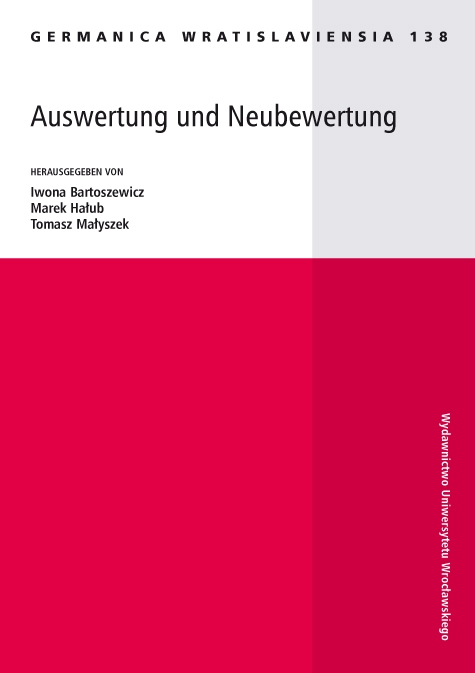

Literaturwissenschaft

Der Geist von Kaiser Karl V. erscheint sowohl im Drama Don Karlos von Friedrich Schiller als auch im Libretto von Josèphe Méry und Camille du Locle zur Oper Don Carlos von Giuseppe Verdi. Im Text von Schiller ist der Geist eine Illusion, der die Wächter erliegen. Aus Angst vor dem Geist fliehen sie, deshalb kann sich Karlos mit der Königin treffen. Im Text von Méry / du Locle hat der Geist die Form einer Illusion, die sich in eine Allusion verwandelt: Die in der Vorstellung der Protagonisten gesehene Gestalt von Karl V. erinnert alle an die Idee des Humanismus.
Allusion instead of illusion. The conception of the ghost of the emperor Charles V in the drama Don Carlos by Friedrich Schiller and in the libretto by Josèphe Méry and Camille du Locle to the opera Don Carlos by Giuseppe Verdi
The ghost of the emperor Charles V appears both in the drama Don Carlos by Friedrich Schiller and in the libretto by Josèphe Méry and Camille du Locle to the opera Don Carlos by Giuseppe Verdi. In the text by Schiller the ghost is an illusion that the guards succumb to. For fear of the ghost they run away, which is why Carlos can meet the queen. In the text by Méry / du Locle the ghost has a form of an illusion that turns into an allusion: The figure of Charles V seen in the imagination of the protagonists reminds everyone of the idea of humanism.